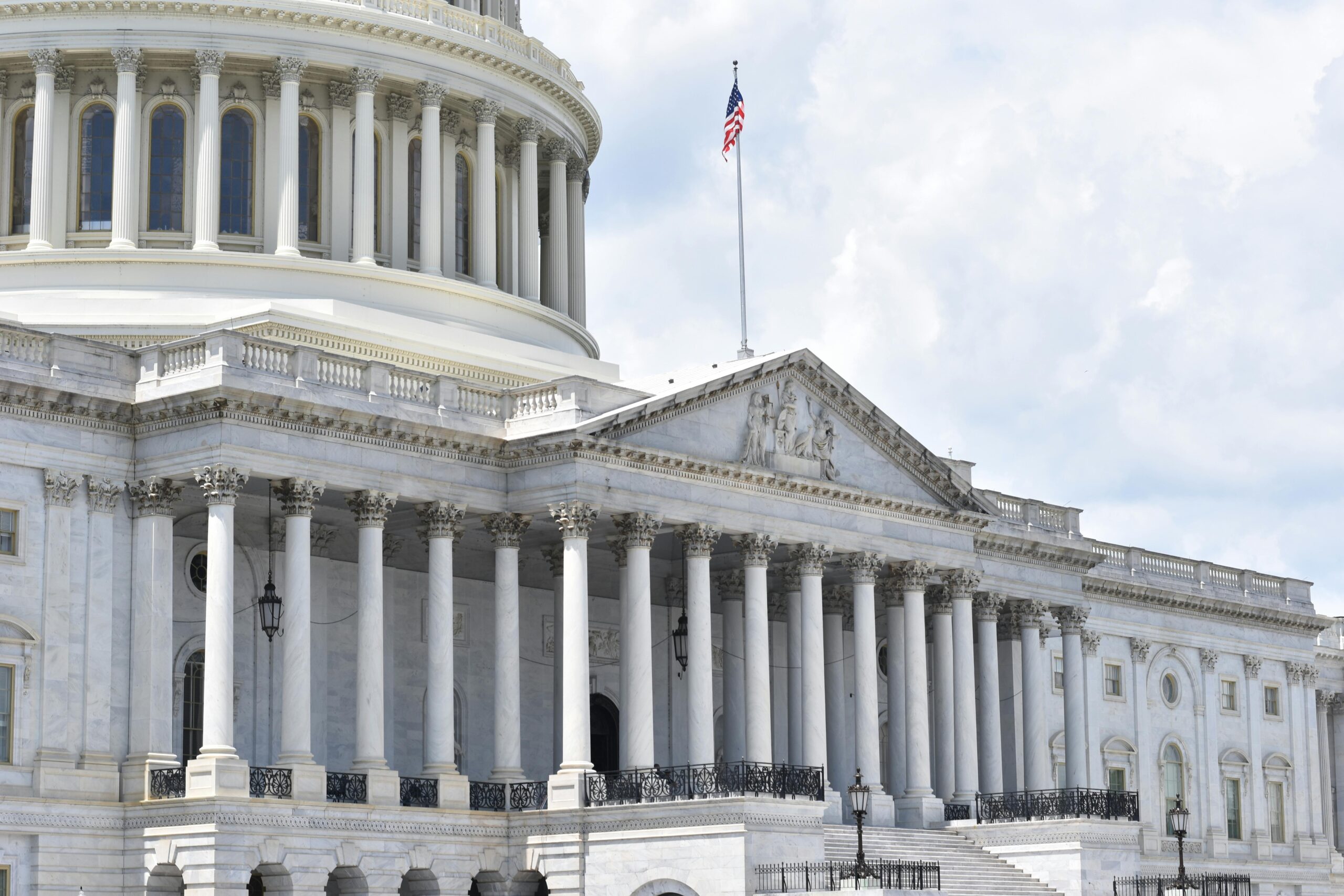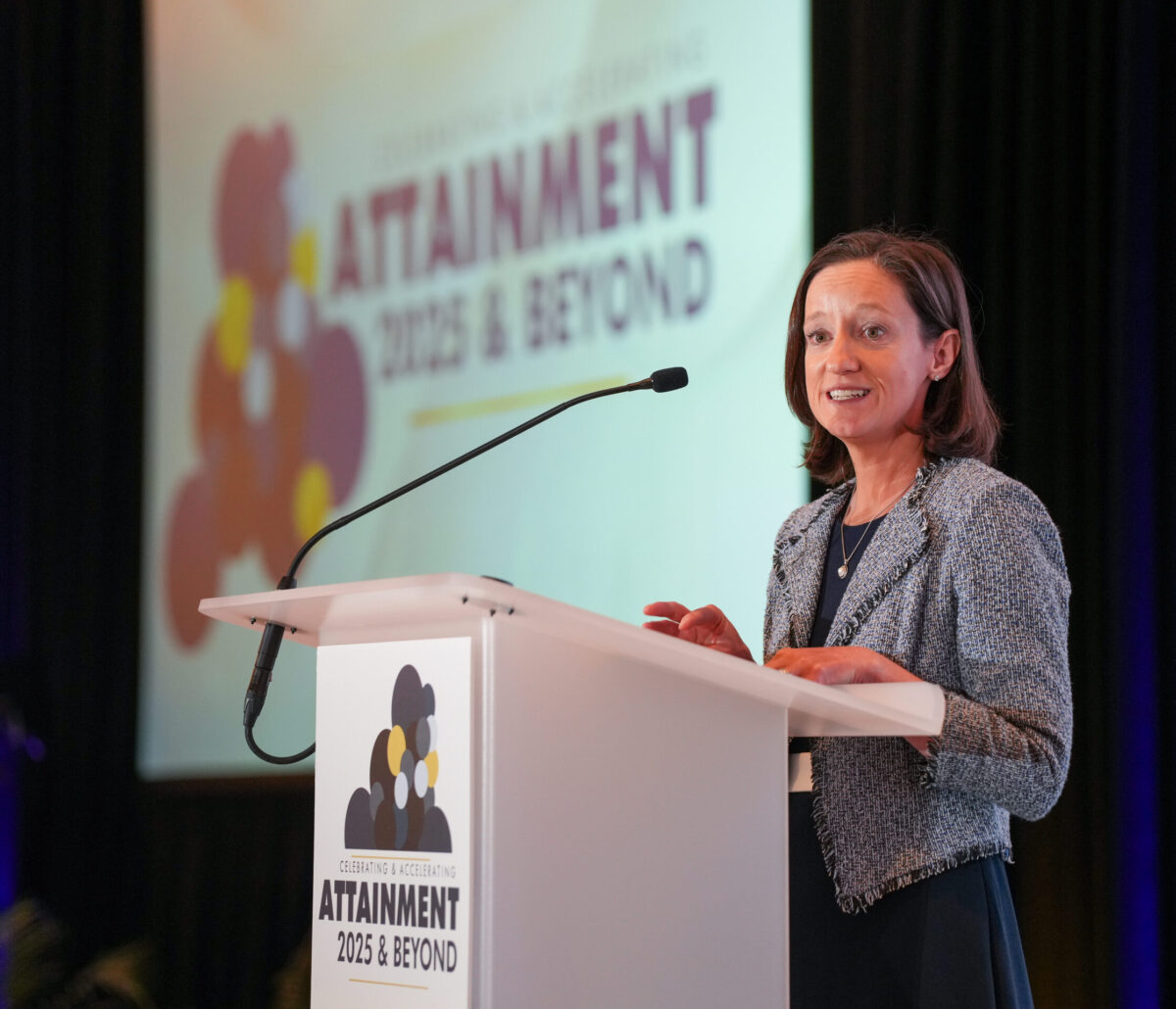IHEP Celebrates the Introduction of the Bipartisan, Bicameral Postsecondary Student Success Act
Published Mar 20, 2024
WASHINGTON, DC (March 20, 2024) – Today, the bipartisan, bicameral Postsecondary Student Success Act of 2024 codifying the Postsecondary Student Success Grant Program, was introduced in the U.S. Senate and the U.S. House of Representatives. The Institute for Higher Education Policy (IHEP) applauds Senator Martin Heinrich (D-NM), and Representatives Melanie Stansbury (D-NM), and Lori Chavez-DeRemer (R-OR) for introducing the Postsecondary Student Success Act of 2024 and promoting evidence-based college retention and completion approaches.
Upon introduction, IHEP President, Mamie Voight, issued the following statement:
“Earning a college degree is the best path to turning career aspirations into a successful livelihood and financially secure, fulfilling life. But many students who set out to earn a degree, don’t finish. A staggering 40 million adults nationwide have earned some college credits, but no degree or credential.
“The Postsecondary Student Success Grant (PSSG) Program aims to improve student outcomes including retention, credit accumulation and completion, and aligns with IHEP’s commitment to advancing evidence-based completion strategies. We are pleased the Postsecondary Student Success Act would codify this vital program and help postsecondary institutions develop, implement, and scale proven college completion approaches. These efforts will help increase the public return on investment in higher education. The Postsecondary Student Success Act promises a brighter future for our nation’s students.
“We thank Sen. Martin Heinrich, Rep. Melanie Stansbury, and Rep. Lori Chavez-DeRemer for their commitment to student success and urge both chambers to pass the proposal.”
###
Between 2018 and 2021, IHEP led Degrees When Due, a national completion initiative to reengage students who paused their studies. Through Degrees When Due, nearly 200 institutions from 23 states developed the capacity to reengage former students and equip students to realize their postsecondary goals.
Last December, the U.S. Department of Education announced ten institutions will receive grants through the FY2023 Postsecondary Student Success Grant Program. These institutions join the five FY2022 PSSG grantees: Austin Community College, Claflin University, Orangeburg-Calhoun Technical College, Passaic County Community College, and The Florida International University Board of Trustees.
IHEP applauds the latest PSSG recipients for their ongoing efforts to tackle our nation’s retention and completion challenges and improve student success.
FY2023 Postsecondary Student Success Grant Program Grantees
| Institution | Award Amount | Project Description |
| California State University, Fullerton (California) | $3,999,436 | Launch Fullerton RISES: Re-imagining Success for Every Student to provide interventions for academically at-risk students. |
| City College of New York (New York) | $7,319,134 | Restructure and expand existing programs, including cohort-based learning, advising, and dedicated tutoring, into WELCOME: Welcoming Experiences and Learning Communities to Maximize Early Success. |
| Colorado State University System (Colorado) | $7,844,905 | Elevate the Systemwide Collaborative for Advancing Learning and Equity with Data (SCALED-CSU) initiative to transform the system’s data strategy, develop a systemwide advising network, and expand U-Behavior, which leverages retrieval practice activities. |
| Georgia State University (Georgia) | $7,578,694 | Initiate TEACH ME: Technology Enhanced Academic Communication to Help in Math and English, to integrate personalized, course-specific chatbot communication into gateway math and English courses. |
| Long Beach City College (California) | $4,000,000 | Implement the Success and Completion Achievement Network (SCAN) for students who delay enrollment. |
| National University (California) | $4,000,000
|
Create the NU Peer Navigator Network to develop peer-to-peer support, virtual meeting spaces, and credential-rich mentor training programs. |
| Saint Peter’s University (New Jersey) | $3,844,614 | Establish the PeacockSuccess by Optimizing Data and Support (PODS) Project with team-based advising, retention-data platform expansion and training, and a Male Resource Center. |
| Tulsa Community College (Oklahoma) | $3,717,502 | Redesign the First Year Experience course by contextualizing the course consistent with the intended major and embedding “Smart Start” sessions within the course. |
| University of California, Berkeley (California) | $3,034,708 | Launch Project Excel to provide individual success counseling, co-curricular group programming, peer mentors, supplemental financial aid, and individual counseling to students who have stopped out. |
| University System of Maryland (Maryland) | $3,999,582 | Establish Maryland’s ABC’s for Student Success to provide peer mentors for coaching-informed practices. |
Project descriptions obtained from the U.S. Department of Education.


